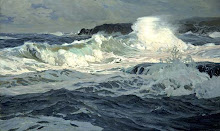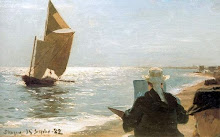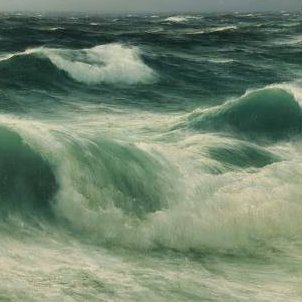Isle of Skye
The Cantor Arts Center at Stanford University, California, is currently presenting an exhibition of oils, watercolors and drawings by the American landscape painter William Trost Richards.
Richards was influenced by the British art theorist John Ruskin and his doctrine of truth to nature. Ruskin thought that, through close observation and accurate depiction of the natural world, artists would reveal evidence of the Creator's hand. But Richard's work is more than simply faithful to nature, it has a human poetic quality. The human artist is, afterall, a part of the natural world. To be true to nature, an artist must also be true to human nature. While depicting the outer world, an artist should also express the inner world.
Richards concentrated on seascapes in the latter part of his career, when traditional landscape painting began to fall out of favour but there was still a market for romantic images of the sea's wild, lonely, spaces. Throughout his long career he stuck to a painstaking realist style, resisting the trend toward tonalism. Though his work may be considered conservative, he is one of my favorite masters of the genre because of his ability to convey a sense of the transcendental. Since his school days, Richards had a strong interest in literature and poetry, and this seems to have benefitted his work.
Read more at the Cantor Arts Center exhibition website.



































No comments:
Post a Comment